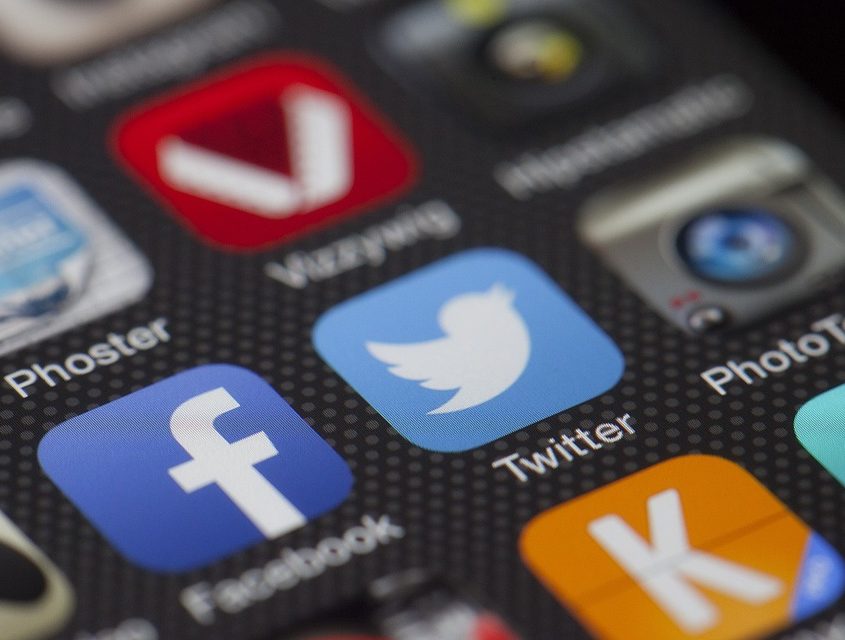Who Will Save Our Mental Health from Technology?

Image courtesy of Pixabay.com
A Former Google Manager is Spearheading Efforts to Limit the Negative Effects of Technology and Social Media
What are the negative effects of technology and social media on us? We’re aware of its influences on our mental health, with studies linking excessive social media use to depression and anxiety. What other grips does cyber-reality have on us?
In 2012, a young manager at Google named Tristan Harris made an impassioned plea in a presentation for his bosses to attend to “[our] moral responsibility to create an attention economy that doesn’t weaken people’s relationships or distract people to death.”
His ideas for a more ethical digital world gained some traction for a time, and it even got him tapped to be the company’s design ethicist. The company lost focus, however, and shifted its attention to other priorities.
Harris left Google in 2015, and three years later, Google produced a screentime tracker known as Digital Wellbeing, so that Android users could see how much time they were spending each day on each application they tapped into. Apple followed suit with a counterpart app for iPhones.
Continuing the Crusade
Were the new screentime tracker apps enough of a leash? Not according to Harris. In Harris’ estimation, the “free” business model is the most expensive business model ever invented.
More recently, Harris started the Center for Humane Technology and has expanded his thinking to bring more awareness to the negative impacts of the internet on our lives. From misinformation/disinformation being proliferated on various social media platforms (e.g., Facebook and YouTube (owned by Google)), to election tampering and invaded privacy, and finally to political divisiveness in our country, the internet gets blamed for a lot. And probably with good reason. Just think about how much control we give our cyber lives over our actual lives.
Harris continues to grow his audience with various national media appearances, conferences, and additional presentations of his own. The biggest takeaway he wants his listeners to remember is the mistake it is to treat mobile technology drawbacks as mutually exclusive from those inflicted by social media. It’s all part of what he refers to as the “extractive attention economy (EAE).”
Our Private Information Used as a Currency
It’s been said that “money talks.” Well, so does information in the EAE. Its business model is driven by gathering and leveraging data about its users and what they like. In order to keep them engaged online, more and more of what users want to see is constantly being fed to them, faster and faster, by automated platforms. This may sound great and convenient, but it actually gives them more extreme, sensationalized content, which only feeds upon their frailties.
Without any thought, judgment, or intent, people dealing with mental health issues might be looking on YouTube for ways to improve their mental health, while being unwittingly steered via “recommendations” toward videos about suicide and death. The only thing the platforms care about is how the relationships between what users are searching for and what the algorithms calculate they like will keep users online, engaged and clicking.
The Unbearable Lightness of Technology
What happened to “fun” social media? Harris warns that our addiction to retweets, likes, comments, and reshares, is only keeping us distracted and depressed.
Steve Jobs spoke of technology as an “exercise bicycle for the mind.” Harris has responded that the exercise bike is taking us down dark, unfamiliar roads where we might not ever want to find ourselves.
Harris believes that language can help shape reality, but he had to work through a growing fear that the language we were using to define the real impact of cyber-reality on our lives was very much lacking. It wasn’t enough to describe what he warns as a coming hailstorm.
One of his epiphanies was the realization that the real danger we’re in isn’t technology overpowering our strengths (like the cliche science fiction bit when computers take over the world). The real danger is when technology learns to overwhelm and leverage our emotional weaknesses against us… for profit.
Harris and his cohorts brainstormed themselves to a point where they thought that what might be going on was a process of diminishing, of degrading human lives and humanity as a whole. Technology, as we give it more and more of our time and attention, is causing the downgrading of human relationships, of human attention, of our common sense of decency, of democracy itself.
How Social Media Negatively Affects Us
Harris has commented specifically about how various social media platforms negatively affect us:
- Snapchat turns conversations into “streaks,” redefining how children value real friendship.
- Instagram glamorizes the picture-perfect life, eroding our sense of gratitude for our real lives, along with diminishing our sense of self-worth.
- Facebook puts us into separate echo chambers, dissolving our real communities.
- YouTube auto-plays the one video after the next, within seconds, regardless of what it does to our sleep.
Four Ways Technology is Hurting Us
Harris shares the four main ways he sees our subservience to technology is taking its toll:
Mental Health
The rat race to keep us on screen 24/7 makes it harder to disconnect, increasing stress, depression, anxiety, and sleep deprivation.
Children
The rat race to keep children’s attention trains them to replace their sense of self-worth with the number of likes they get, encourages them to compare themselves with others, and creates a non-stop illusion of missing out…which can lead to coping problems and mental health challenges.
Relationships
The competition for attention forces social media users to prefer virtual interactions and rewards (likes, shares, etc.) on their screens vs. interaction in a real face-to-face community.
Democracy
Social media unwittingly rewards faux rage, sensational facts, while reducing the role of factual information. It’s dividing us and making it increasingly difficult to agree on what is “real.”
So, where does this leave us? Possibly with additional challenges for those coping with mental health issues brought on by extensive technology use.
The good news is that you can take back control of your life by better managing your social media use.
Curious to hear more?
- Harris’ most popular essay How Technology Hijacks People’s Minds – from a Magician and Google’s Design Ethicist (15 min read)
- Harris’ most popular interview, “What is Technology Doing to Us?” (80 mins) with the philosopher and neuroscientist Sam Harris.
Do you suspect that excessive technology use and social networking are having a negative effect on your mental health or on that of a loved one? If you or someone you love need to talk to someone about mental illness or feelings of being overwhelmed, we want to help. Consider reaching out to our expert team at Solara Mental Health at 844-600-9747.






Leave a Reply
Want to join the discussion?Feel free to contribute!